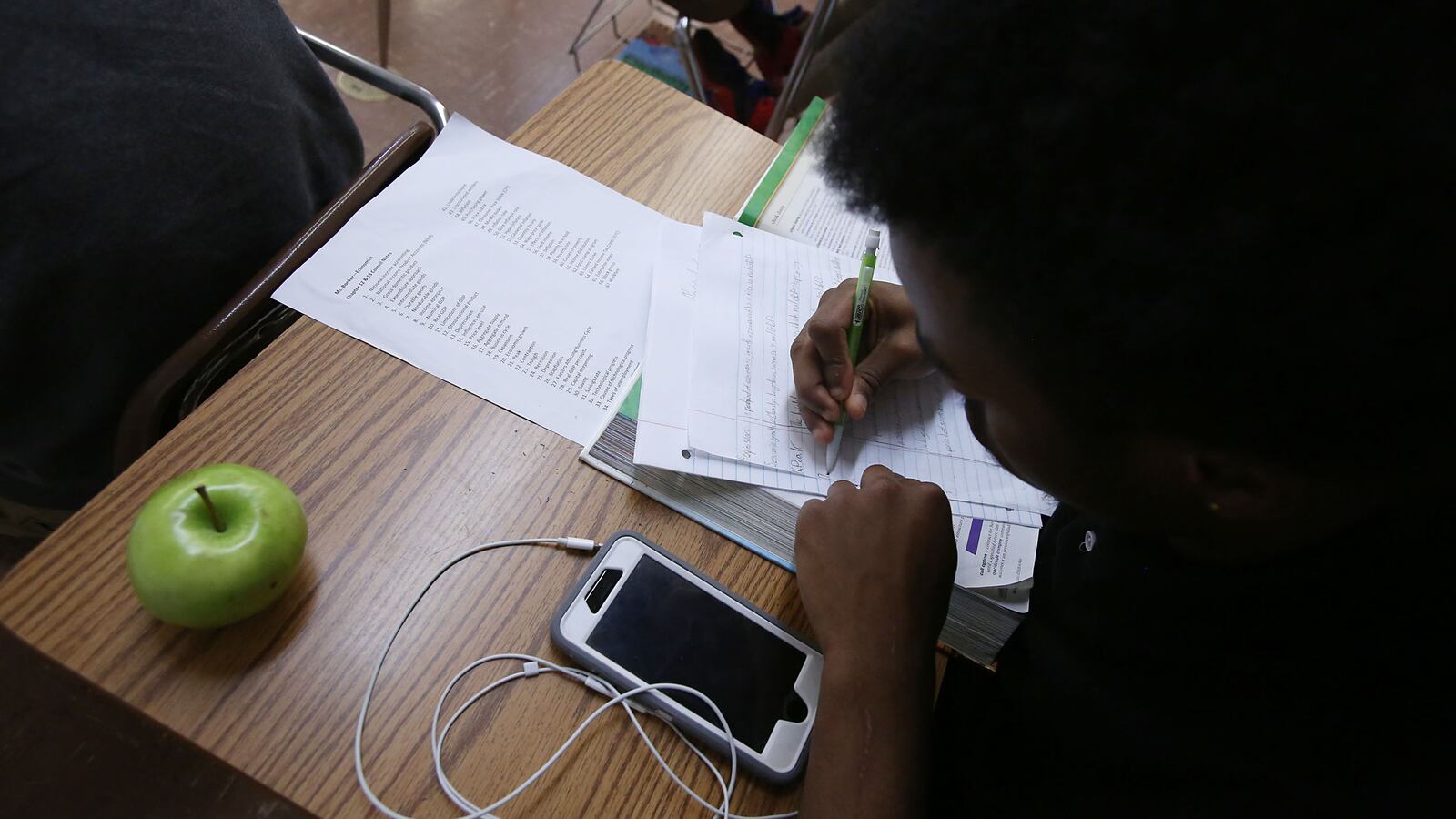At a make-or-break moment for Tennessee’s turnaround school district, its 30 schools have collectively delivered another round of low test scores.
Only 3.4% of high schoolers in the Achievement School District met the state’s proficiency standards on this year’s math and English exams, while 12.6% of elementary students reached that benchmark, according to data released by the state education department Thursday.
The news is not surprising: The Achievement School District oversees 30 of the state’s lowest-performing schools, the majority of which are in Memphis.
Still, the scores deliver another blow to the credibility of the turnaround effort once heralded as a national exemplar. This year, the district — whose low-performing schools are taken over by charter school organizations tasked with improving them — lost its third leader, had its poor performance analyzed by an academic study, and came under scrutiny from the state’s new education chief. Commissioner Penny Schwinn says she plans to announce major changes to the district soon.
Those changes will target a district where only a handful of students meet the state’s standards in reading and math.
Search for a school within the Achievement School District below. You can compare TNReady scores to see the percent of students scoring at/above grade level for multiple schools. If a score is marked as redacted, that is because there were not enough valid samples or the overall average is less than 1% or greater than 99%, according to the state department.
Only 7.5% of the achievement district’s elementary and middle school students scored on grade level in English, down slightly from last year. In math, 12% of students scored at grade level or higher, which represented an increase. Both remain well below state averages.
In the district’s five high schools, scores in Algebra I, Geometry, and English rose but remained very low, while U.S. History scores slightly dipped.
About 3% of high schoolers in Algebra 1 and 4% in English 1 scored on grade level. (Two of the five high schools are alternative schools that serve students who have already fallen behind in high school).
A searchable database of last year’s scores for schools in the achievement school district is available here.
This year’s scores reflect the first normal testing season for Tennessee in years. Public trust in the test’s reliability was at an all-time low after three straight years of technical glitches, scoring errors, and score delivery issues. But this spring, TNReady’s administration went the smoothest ever, building back at least some credibility in the results.
While the state exam, known as TNReady, measures academic performance with a battery of tests, the state uses a different system to capture how much a student grows academically over a school year. That system is designed to recognize improvements in districts and schools that serve many students from low-income families, who tend to score lower on state tests. That includes the Achievement School District, where three-quarters of students live in poverty.
For the second year in a row, the district as a whole scored at the lowest level of student growth, 1 on a scale of 1 to 5.
The achievement district wasn’t the only turnaround effort in Tennessee to struggle with boosting scores. Of 10 turnaround schools that are currently still a part of the Shelby County Schools’ Innovation Zone and took state exams last year, seven ranked a 1 in student growth.
Only five schools in the Achievement School District scored a 5, or in the top level of student growth, compared to eight schools last year. The four schools are Brick Church Middle School, Neely’s Bend Middle School, Libertas School of Memphis, Cornerstone Prep Denver, and Cornerstone Lester Prep.
LEAD Public Schools in Nashville runs both Brick Church and Neely’s Bend, the only two schools in the achievement district not in Memphis. LEAD Public Schools CEO Dwayne Tucker credited consistency in the principals and teaching staff at both schools for the growth.
But while LEAD’s two schools gained the highest growth scores, less than 15% of their students scored on grade level in math and English.
“There’s very little chance of changing a student’s trajectory without the retention of our school leaders and the overwhelming majority of our high-performing teachers,” Tucker said. “That’s been our focus, and that’s why you see the growth. But, academically, we are far from where we want to be and where we believe our students should be.”
Schwinn said she is rethinking the state’s approach to improving struggling schools, but exactly how that will work is unclear.
She told Chalkbeat last month that she plans to shift the state’s turnaround strategy “aggressively towards local partnerships.”
That could look like expanding Tennessee’s Partnership Network model, currently in Hamilton County, where the state and local district are trying to work together to improve a handful of low-performing schools. Those schools along with others in the southeastern country saw their test scores improve after a year under the model, district officials said this week in advance of the state’s official test score release.
Schwinn told Chalkbeat in late July that she will announce major changes to the Achievement School District soon – and before that will take her meetings on the road to Memphis.
NOTE: The state department said it did not administer elementary social studies and English III exams this year.
CORRECTION: A previous version of this story left off Cornerstone Lester Prep from the list of achievement schools that scored a 5 on student growth.

